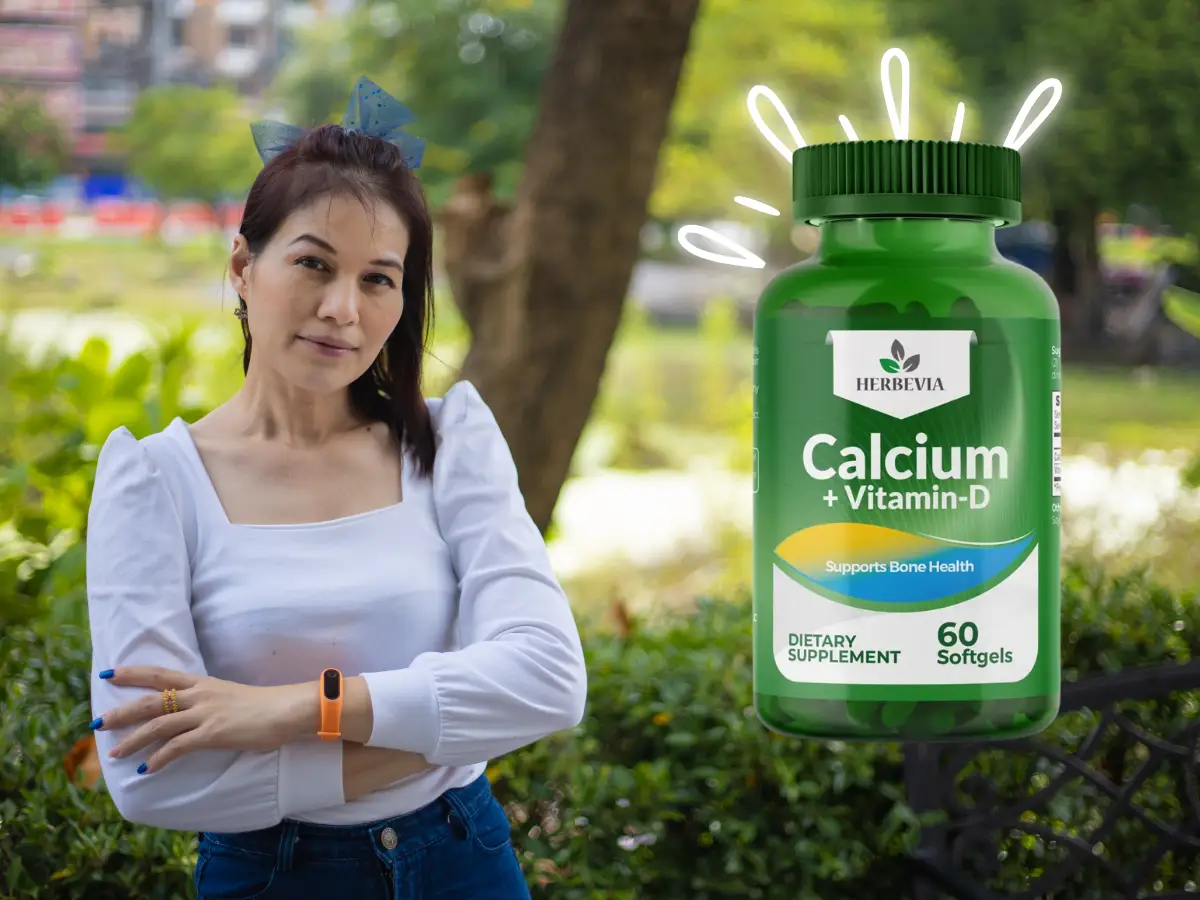Dec. 20, 2024
Don’t Ignore Calcium & Vitamin D After 40 – Here’s Why

Women's bodies face many changes as they age. One big change is the need for more calcium and Vitamin D. These nutrients are essential for staying healthy, especially after 40. Here’s why they matter and how to make sure you get enough.
Why Calcium and Vitamin D Are Important
1. Keep Bones Strong
As you age, Women’s bones lose strength.
- Fact: By age 50, one in two women in America. will break a bone due to weak bones.
- Calcium helps keep your bones strong and reduces the chances of fractures.
Vitamin D works alongside calcium. It helps in calcium absorption to maintain the strength of your bones.
2. Prevent Osteoporosis
Because of osteoporosis, bones become weaker and more easy to break.
- Fact: Osteoporosis affects approximately 10 million Americans, 8 million of them are women.
After menopause, women lose bone more quickly because of reduced estrogen levels. Getting enough calcium and Vitamin D slows this process and keeps bones healthy.
3. Support Muscles and Heart
Vitamin D and calcium are also necessary for your heart and muscles that you can’t skip.
- The heart muscle and other muscles can contract and relax with the help of calcium.
- Vitamin D supports muscle strength and helps your heart stay healthy.
Without these nutrients, you might feel muscle cramps, weakness, or even heart problems.
How Much Calcium & Vitamin D Do You Need?
The National Institutes of Health (NIH) recommends:
- Calcium: 1,000 mg daily (1,200 mg if you’re over 50).
- Vitamin D: 600 IU a day (800 IU if you’re over 70).
What Happens If You Don’t Get Enough?
If your body lacks calcium or Vitamin D, you might notice:
- Weak bones or frequent fractures.
- Muscle cramps or soreness.
- Fatigue and low energy.
- More frequent colds or sickness.
Why Women in the U.S. Are Missing These Nutrients
1. Diet Choices
Many women don’t eat enough calcium-rich foods.
- Fact: Only about 30% of people in the U.S. get enough calcium through their diet.
Some avoid dairy (a main source of calcium) because of lactose intolerance or dietary restrictions.
2. Less Sunlight
Vitamin D comes from sunlight, but many people spend most of their time indoors.
- Fact: The percentage of Americans who do not get enough vitamin D is about 42%.
Age also reduces the body’s ability to produce Vitamin D from sunlight.
How to Increase Vitamin D and Calcium in Your Body
1. Eat the Right Foods
Include these in your meals:
- For Calcium: Dairy products (milk, cheese, yogurt), leafy greens (kale, spinach), and fortified foods like almond milk or cereals.
- For Vitamin D: Vitamin D-rich vegetarian foods include fortified plant-based milk (such as almond, soy, and oat milk), fortified cereals, and fortified orange juice.
2. Spend Time Outside
Sunlight is a great source of Vitamin D. Try to get 10–15 minutes of sunlight every day.
3. Take a Supplement
When food and sunlight aren’t enough, a supplement can help.
Try Herbevia's Calcium + Vitamin D Softgels supplement:
- Strengthens Bones: Helps keep bones dense and reduces the risk of fractures.
- Supports Muscles: Keeps muscles strong, including your heart.
- Boosts Immunity: Helps your immune system fight off illnesses.
Herbevia’s softgels are easy to absorb and made in the USA, GMO-Free with high-quality ingredients.
Usage: Take two softgels daily with a meal for the best results.
Simple Tips for Better Bone Health
- Exercise Regularly: Do weight-bearing activities like walking, jogging, or yoga. You can maintain strong bones by doing these exercises.
- Limit Caffeine and Alcohol: Too much caffeine or alcohol can weaken bones over time.
- Quit Smoking: Smoking increases the risk of osteoporosis.
- Stay Active: Move around often to keep muscles and bones working properly.
Key Facts You Should Know
- 80% of women with osteoporosis are over 40.
- Vitamin D levels are low in 42% of Americans.
- Proper calcium and Vitamin D intake can reduce fracture risks by up to 50%.
FAQs About Calcium and Vitamin D
Q1: Can I take calcium and Vitamin D together?
Yes! They work best together. Calcium absorption in the body is enhanced by vitamin D.
Q2: What happens if I take too much calcium?
Too much calcium can cause kidney stones or heart problems. Stick to the recommended dose.
Q3: How long should I take supplements?
Talk to your doctor, but most women benefit from long-term use, especially after 40.
Final Thoughts
Women over 40 need to pay extra attention to their health. Calcium and Vitamin D are two nutrients that can make a big difference. They help keep your bones, muscles, and heart strong.
When diet and sunlight aren’t enough, Herbevia’s Calcium + Vitamin D softgels can help. They’re easy to take and work to support your health every day.
Take charge of your health today—because strong bones mean a stronger, healthier life!